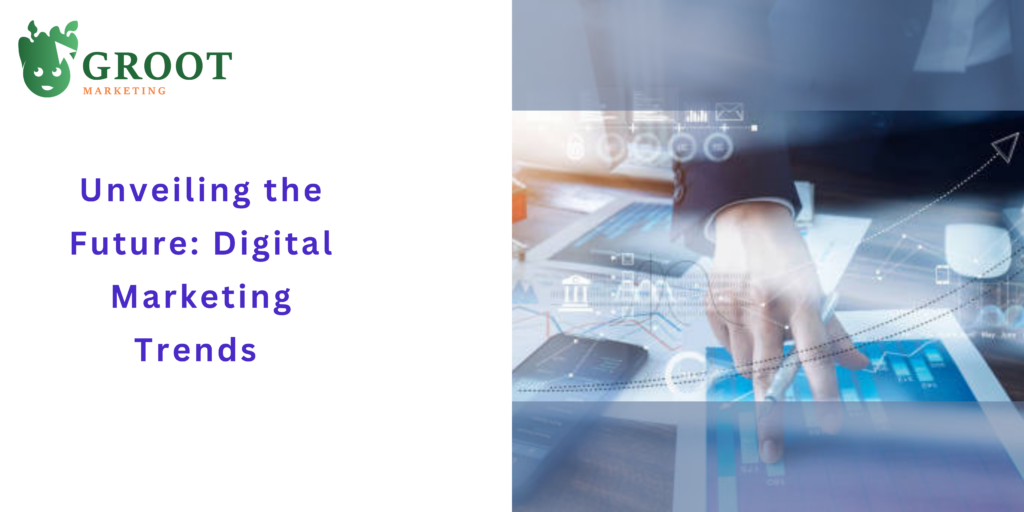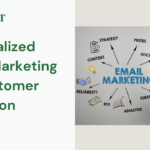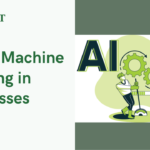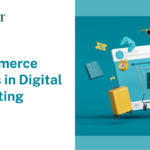The digital marketingis evolving at lightning speed, and as we look ahead to 2025, the transformation is only set to accelerate. With emerging technologies, shifting consumer behaviors, and the increasing importance of personalization, marketers need to stay ahead of the curve. One of the central pillars in this evolving space is the rise of online communities, which are playing a pivotal role in shaping marketing strategies, alongside several other key trends.
In this blog, we’ll unveil the top digital marketing trends that will dominate 2025 and explore how businesses can leverage these trends to stay competitive and thrive in the digital age.
1. The Rise of Online Communities
As we move towards 2025, the role of online communities in digital marketing will only grow stronger. Consumers are no longer just passive recipients of content—they want to engage, share, and connect with brands and like-minded individuals. This shift means that brands will need to focus on building strong online communities where people feel valued and involved.
Online communities offer a space for authentic interaction between brands and consumers, helping to foster loyalty, trust, and engagement. These communities can be hosted on social media platforms, brand-specific apps, or forums, and they create a sense of belonging that can lead to long-term brand advocacy. By encouraging user-generated content, discussions, and product feedback, brands can cultivate a more engaged and loyal customer base. In fact, by 2025, online community building will become a core component of any successful digital marketing strategy.
Why It Matters: An active online community can significantly increase brand loyalty and organic reach. Engaging with your community allows brands to collect feedback, generate new ideas, and improve products based on real-time input from users.
2. Artificial Intelligence and Automation in Marketing
Artificial intelligence (AI) is already making waves in digital marketing, but by 2025, its influence will be even more profound. AI will continue to streamline operations by automating repetitive tasks such as content generation, personalized email campaigns, and customer service chatbots. Marketers will rely more heavily on AI to analyze large datasets, providing insights that inform smarter decision-making and targeted marketing efforts.
AI-driven tools will also enable hyper-personalization. Instead of broad marketing campaigns, brands will deliver highly targeted, data-driven content that resonates with individual users, improving customer experience. For example, AI can analyze user behavior to predict what content or products they are most interested in, allowing marketers to create personalized journeys that drive engagement and conversions.
Why It Matters: AI-powered marketing allows for enhanced efficiency, improved personalization, and better results. Automation will free up time for marketers to focus on strategic planning while AI ensures customers receive the most relevant content at the right time.
3. The Metaverse and Virtual Worlds
The metaverse, a fully immersive virtual world, is rapidly becoming a reality and will be a significant trend shaping the future of digital marketing by 2025. Platforms like Meta (formerly Facebook), digRoblox, and Decentraland are already paving the way for virtual experiences where people can interact with brands in ways that were once unimaginable.
Brands will be creating virtual stores, hosting digital events, and building online communities in these virtual worlds to engage with their audience in an entirely new dimension. This trend opens up endless possibilities for innovative marketing strategies, such as virtual product launches, branded in-game content, and immersive brand experiences.
Why It Matters: The metaverse offers marketers a new platform to engage customers in creative ways. Virtual experiences allow for more immersive, memorable interactions, increasing brand loyalty and enhancing user experience.
4. Data Privacy and Ethical Marketing
As data privacy becomes an increasing concern for consumers, brands will need to adapt their marketing strategies to ensure they are respecting consumer privacy and building trust. By 2025, we’ll see stricter regulations and higher expectations from consumers regarding how their data is collected, stored, and used.
Marketers will need to prioritize transparency and ethical practices to maintain consumer trust. Building trust will involve obtaining explicit consent for data collection, being clear about how data is used, and offering more personalized experiences without compromising privacy. Brands that adopt an ethical approach to marketing will likely see stronger customer relationships and higher brand loyalty.
Why It Matters: Transparency in data usage fosters trust. As regulations tighten, brands that lead with ethical marketing will stand out, maintaining customer loyalty while attracting privacy-conscious consumers.
5. Influencer Marketing 2.0
Influencer marketing has been a staple of digital marketing strategies for years, but by 2025, it will have evolved significantly. Rather than partnering with celebrity-level influencers, brands will focus on micro and nano-influencers—individuals with smaller, more engaged followings within niche markets. These influencers tend to have more genuine relationships with their audience, leading to higher engagement rates and more authentic recommendations.
Additionally, influencer-driven online communities will become even more valuable. Influencers with strong communities will provide brands access to a highly targeted and loyal audience. This will help brands forge deeper connections with customers and create more meaningful collaborations that drive conversions.
Why It Matters: As consumers become more skeptical of traditional advertising, influencer marketing provides a way to authentically reach audiences through trusted voices. Building relationships with niche influencers will offer brands access to highly engaged communities that are likely to convert.
6. Video Content and Livestreaming Dominate
Video content continues to reign supreme, and by 2025, it will dominate digital marketing strategies even further. Platforms like TikTok, YouTube, and Instagram Reels have shown that short-form video content is highly engaging and effective at capturing audience attention.
Livestreaming will also become a core marketing tool, offering real-time interaction with consumers. Brands will use livestreams for product demonstrations, Q&A sessions, and virtual events, fostering direct engagement with audiences. This, combined with online communities, will allow brands to cultivate authentic relationships with their followers in a highly interactive format.
Why It Matters: Video content, particularly short-form and live video, engages consumers more than static content. Brands that leverage video marketing will see higher engagement rates and more personal connections with their audience.
7. Sustainability and Purpose-Driven Marketing
Consumers are becoming more conscious of the environmental and social impact of the brands they support. By 2025, sustainability will no longer be a secondary concern—it will be a key differentiator. Brands that incorporate sustainability into their marketing strategies and demonstrate a commitment to positive social and environmental impact will be more successful at attracting and retaining customers.
In addition, purpose-driven marketing that aligns with the values of an online community will be essential. People want to support brands that share their beliefs and contribute to causes they care about. Brands that can communicate their purpose effectively will build stronger emotional connections with their audience.
Why It Matters: Consumers are increasingly driven by their values, and they expect brands to do the same. Purpose-driven marketing not only attracts socially-conscious consumers but also builds lasting loyalty within a brand’s community.
Conclusion: Embracing the Future of Digital Marketing
As we approach 2025, the digital marketing will continue to evolve at a rapid pace. Marketers must stay adaptable and forward-thinking, leveraging new technologies, understanding changing consumer behaviors, and prioritizing meaningful engagement through online communities.
By embracing trends such as AI-driven marketing, the metaverse, and ethical marketing practices, businesses can stay competitive and build lasting relationships with their audience. The brands that succeed will be the ones that prioritize innovation while keeping their customers at the heart of their strategy.
The future of digital marketing is bright—and building strong online communities will be key to navigating and thriving in this ever-changing marketing.







